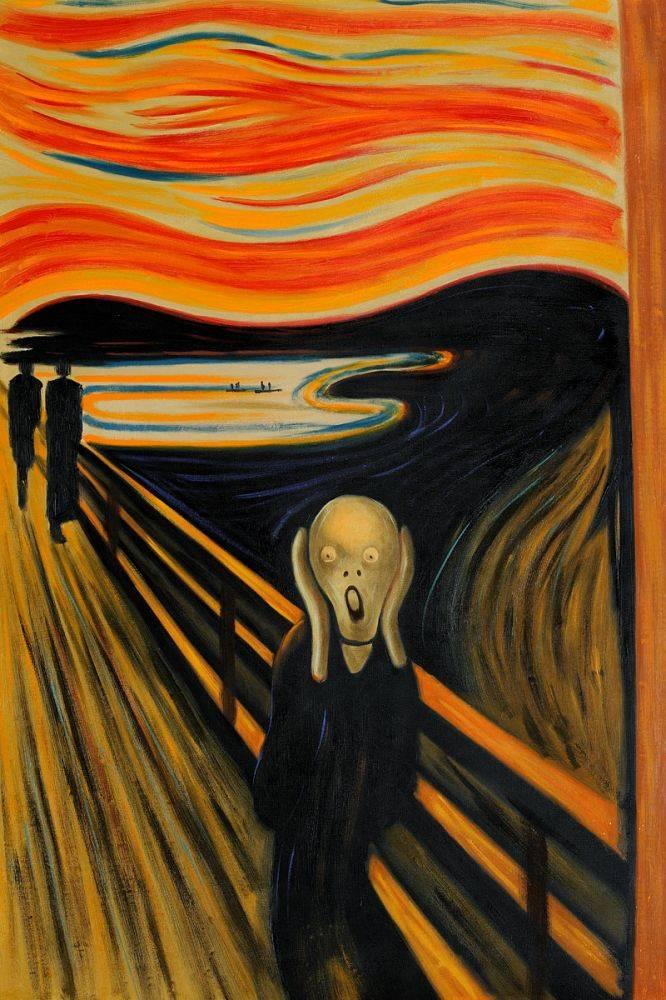
A permanent and revolutionary change generally, but not always, seems to require a period of work in order to build up the necessary ‘energy’ which can then initiate such a change. The experiential ‘friction’, that comes from the position of there being the presence of a wish and the resistance to such, can be the necessary fuel to such a change.
Generally, radical change requires a change in ‘mind’ and the relation of this to one’s ‘values’. This usually involves some intense and/or revelationary experience and realization. To be ‘serious’ I need a realization of the actual value of such seriousness. An intense realization can be imprinted in us in such a way as to change our functioning. Often realizations aren’t imprinted in us in such a way, and so their influence is limited. So there is the emphasis of work to remember and to enable such realizations to become an active influence that is more coherent inside and outside of us.
No honest work and struggle is wasted.
You recognise a wish present in you for something, let’s just call it the wish for seriousness in relation to your values, to what has seen to be really valuable to oneself. The content of this wish, it’s direction, as you currently understand it, may be called your ‘God’. If it is really that which has been seen to be of most value, the highest of your various values, then we can call it the ‘Holy of Holies’ for you presently.
Aside from the content and direction of the wish, there is the nature of the wish itself. You appear to recognize that there is an apparent limitation in the wish, such that it is currently not able to yield the desired result. To become ‘serious’ is then the successful application of this wish, for it to become able to yield the desired results.
In resistance to the wish, there is the recognition of something opposed to its fulfilment. This something has the nature of impulses which seem to produce actions, inner and outer, that are contrary to the wish. There is resistance to the wish, and there is the transitory and temporary nature of the wish, it’s lack of ableness etc.
This situation gives suffering and frustration, the intensity of which could possibly be considered as dependent upon the degree of intensity of the wish, also the degree of difference or contraryness between the content and direction of the wish and the nature of the resisting impulses, and also the degree of seeing into this current situation, it’s implications and results etc. These three are the main determiner of the suffering and frustration etc that may be present in such a situation.
Now, how do we deal with this suffering and frustration etc? How do we approach and define such suffering itself, and then also what do we do in response to it?
If the wish, it’s content and direction, is our God, then the suffering and frustration is our ‘Son of God’, and in this sense, it is equally ‘Holy’. This suffering and frustration itself is a sign and testimony to something, and it is also a possible seed which can possibly grow into the realization of the wish, it’s actualization and manifestation.
Aside from the general idea of work, which may give some directions as to how to approach such suffering and what to do with it, there needs to be some personal understanding of it, through which the value of such suffering is determined. This then determines how such suffering is approached, through giving it it’s meaning.
There is the need to inquire into this suffering and frustration, to spend time being with it and looking into it. Looking into that which comes forth in us in response to our situation, the situation of the presence of a strong value, the wish for its realization, and the presence of resistance which is contrary and diametrically opposed to this value and wish and which can be overwhelming to them etc.
The ‘terror of the situation’ has two main aspects. One is to do with the nature of the Creator-Creation relationship and what risk this entails in terms of an intertwined fate. The other is to do with the apparent presence of conscience in a being who realizes that they have no ‘substantiality’ or ‘coherence’, such that they could at any time be subject to an impulse or influence that could make them act in any sort of manner, meaning that they were then capable of all and anything including that which was ‘unthinkable’ to such Conscience. In relation to this lack of substantiality and coherence, there can also be certain insights and realizations into the nature of what is called the ‘after life’, and the realization of perspectives not too promising in this direction.